Glyphosate In Your Food: What You Need to Know About This Chemical and Your Health
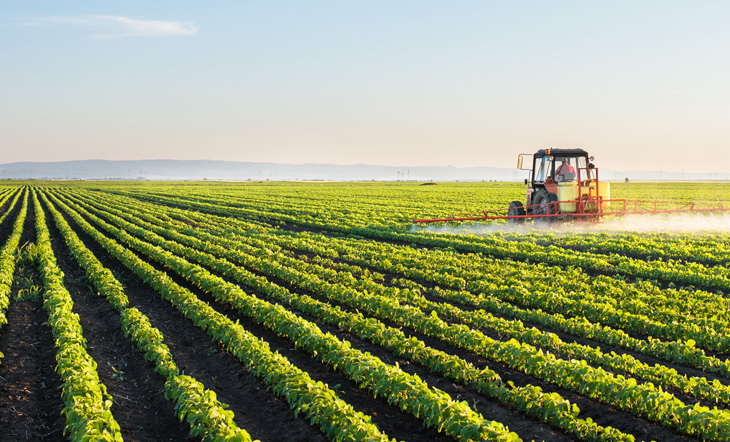
A few years ago, you may not have ever heard the words “glyphosate” or “Roundup” in the news. Maybe you still haven’t.
Glyphosate, more commonly known by its household name of “Roundup” (in which glyphosate is the main chemical), might be in your garage right now. If not, Roundup (a popular brand of herbicide, or weed killer) is certainly available at your local garden store.
Since we know that glyphosate is the chemical compound in weed killer, it is shocking to hear that glyphosate is completely commonplace in the US . . . in food.
While you may never have batted an eye at this seemingly harmless chemical, it’s garnering its fair share of attention lately as a possible culprit in all sorts of illnesses, and even as a potential contributor to the increase in gluten sensitivity.
Glyphosate is the chemical compound in weed killer, and is completely commonplace in the US . . . in food.
It’s even been at the center of a recent class action lawsuit (more on that later). Do a quick Google search and one of the top results is a claim for people who have potentially developed lymphoma or leukemia as a result of exposure. Thus it is worth educating yourself on this all-too-common chemical.
Could glyphosate be in your body, your food, and playing a role in your health?
It’s Time to Get Woke About Glyphosate
We know, we know . . . it seems like everything causes cancer or disease these days. While the temptation to bury your head in the sand is real, it’s also 2020 and being woke is not only cool, it’s imperative.
The truth of the matter is there’s a shocking lack of regulation or testing when it comes to the chemicals and toxins found in our everyday life. To be exact, 84,000 chemicals are currently legal in the US, and basically all are unregulated.
Why is glyphosate worth singling out, and how could it be impacting not just your long-term health, but even your sensitivity to gluten? (And even if you and gluten are BFF, it’s still important to know the long-term health implications of this common chemical – and what you can do about it.)
What Is Glyphosate and Why Is It Literally Everywhere?
To understand the issue of glyphosate, it’s important to understand how it became so widespread in our lives.
The chemical found its way into our sheds and gardens via Roundup after the herbicide was patented in the 1970s. Prior to this, factories used glyphosate as a descaling agent to clean out industrial pipes and boilers.
Once it was (accidentally) discovered to also kill weeds, Monsanto swooped in and created the brand “Roundup” to market the chemical as a weed-killer.
Ever heard of “Roundup-ready” crops? Monsanto GMO crops across America (namely soy, corn, and wheat) are designed to be resistant to Roundup so crops can be regularly doused with the weed killer.
Flash forward to now, and it’s become the world’s most widely used herbicide, with over 6 billion kilograms applied worldwide just in the last decade.
Because glyphosate is a water-soluble chemical, this means it can readily pass through our environment, hang out in our rain, our groundwater, and soil. It can also pass through our bodies (meaning we pee it out) but before it leaves us, the chemical has ample opportunities to seep into our bloodstream and tissues.
So, What’s the Problem With Glyphosate in Food?
As glyphosate is no newcomer to the chemical scene, you’d be correct in assuming it’s at least been tested and “proven” to be safe.
Many studies have been conducted over the years by the EPA, and other regulatory agencies, looking at health implications. Most found no conclusive link between glyphosate and human health concerns.
However, the story gets even muddier from here.
The World Health Organization’s international agency, the International Agency for Research on Cancer (IARC), formally ruled in 2015 that glyphosate was “probably carcinogenic to humans.”
This was based on animal studies showing links between glyphosate and cancerous tumors, as well as lab studies on the herbicide’s effects on human DNA.
Countries such as France have made a point to start eliminating the use of glyphosate, and while the EPA and other large agencies still stand by their “glyphosate is safe” stance, individual states like California still list it as a known carcinogen.
More recently, you may have heard that Monsanto lost a lawsuit which proved them responsible for causing the terminal cancer of a groundskeeper named DeWayne Johnson who had handled Roundup for years at his job.
The story gets even muddier from here.
In the hearing, a scientist (who formerly worked for the government) attested that glyphosate is probably carcinogenic, and a judge ruled DeWayne Johnson’s terminal non-Hodgkin lymphoma was caused by his years of using Roundup.
There are somewhere around 8,000 lawsuits (just in this country) in progress against Monsanto and Bayer, regarding the use of glyphosate. Not exactly reassuring, when it comes to a chemical that’s still available at any garden store.
A study done by the EWG on common breakfast cereals, both conventional and organic, found lingering glyphosate in every sample they looked at of popular oat-based cereals, granolas, and snack bars. Most of these samples contained levels higher than deemed safe.
Studies conducted by Moms Across America found shockingly high levels of glyphosate in the breastmilk of nursing women, despite Monsanto’s claims that the chemical gets flushed out in our urine.
The Health Concerns of Glyphosate in Food, Including Gluten Sensitivities
Aside from accumulating in our bodies and potentially causing or contributing to cancer (as though that weren’t enough!), what else might glyphosate play a role in?
Many studies have linked the herbicide to everything from hypothyroidism to Parkinson’s disease, ADHD, inflammatory bowel or leaky gut, and more.
Glyphosate is to blame for a disruption in our bodies of normal, beneficial gut microbiome organisms, which throws off the delicate balance of bacteria in our bodies. It also inhibits certain crucial enzymes responsible for carrying out toxins and keeping our bodies clean.
A meta-analysis study looking at the glyphosate-gluten link said gluten intolerance is a growing issue and that glyphosate is the “most important” causal factor.
In studies of fish, those exposed to glyphosate exhibited digestive problems very similar to someone suffering from celiac disease.
Furthermore, research has shown that glyphosate is able to bind to gluten, which prevents the natural process of gluten in the body. The end result is that the gluten stays in our bodies in a less digestive, more allergenic state, which could explain the rise in gluten issues.
If you’ve ever traveled abroad and suddenly found yourself eating pasta and baguettes with none of the usual symptoms that US gluten causes for you, that could be why. Many European countries’ wheat isn’t grown with Roundup, as much of it is in America.
What Can We Do About Glyphosate in Food?
So, what can we do, when this chemical seems to be seeping into our water, food, and even lingering in our bodies?
New legislation and change on a systemic level is needed for sure in order to regulate glyphosate. But what you can do right now is choose your food products as wisely as possible. Organic is always the best choice, since the chemical is banned in organic crops.
Not sure about the difference? Read: Organic vs Natural vs GMO Foods and What You Need to Know About Each
Support your local farmers markets if possible, and ask if they’re organic. Grow your own food, in pots or in a raised bed in your yard, and – of course – grow without conventional pesticides! Take all measures you can to live the most chemical-free and least toxic lifestyle as possible.
Try these tips on how to detox your beauty products: Ditch the Dirty Dozen! Beware of These 12 Toxic Chemicals Lurking in Your Beauty Products
We’re living in interesting times, but you can still take your own health into your own hands, and education + conducting your own research and drawing your own conclusions is the first step!
All included information is not intended to treat or diagnose. The views expressed are those of the author and should be attributed solely to the author. For medical questions, please consult your healthcare provider.


This Month's Letter
From the Editor
Monthly motivation and food for
thought from our founder.

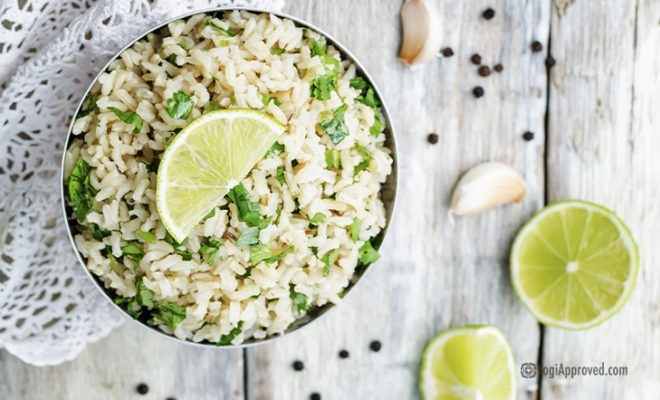
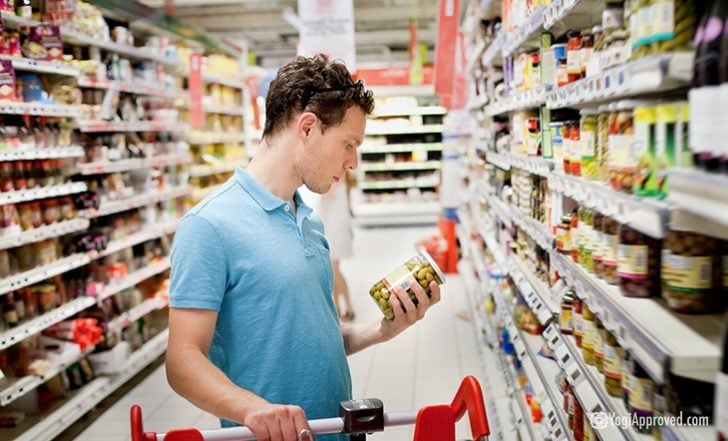


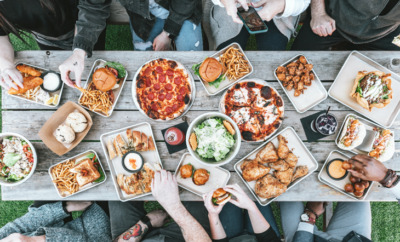


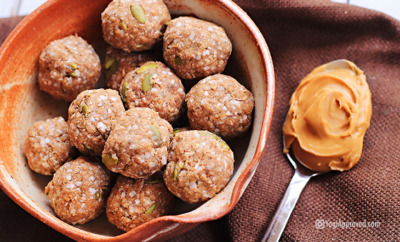





















Comments